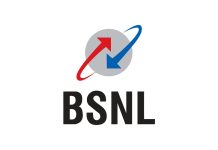
The pandemic changed our daily routines and work environments, and while the “new normal” works for some people, it can be an additional source of stress and frustration for others. It also affects the ways employers manage their businesses and staff. Some employers opted for more invasive measures and implemented remote workforce monitoring tools to keep an eye on their employees and their productivity. However, recent studies have shown that staff surveillance has deteriorating effects on people’s mental health, contributing to feelings of distrust and resentment towards the company and management.
Therefore, it’s wise to look into potential negative aspects of workforce monitoring and estimate how its implementation can change the environment and atmosphere in your company.
Here are the five most common drawbacks of monitoring your staff.
1. It has a negative effect on employee wellness
ExpressVPN’s survey on remote work surveillance found that 56% of employees are anxious and stressed about employers monitoring their activities, while 32% of them admitted taking fewer breaks for this reason. Remote worker surveillance can put an additional emotional strain on your employees, so if you’re considering implementing one of the monitoring tools, make sure to see how your employees feel about it. For instance, you can create an anonymous survey where your employees can openly express their opinion and potential concerns.
2. It invades employees’ privacy
Hardly anyone would want to share their search history with their boss. They may feel like their privacy has been invaded if someone is monitoring their online activities, especially during breaks. According to the same study, 48% of employees are willing to take a lower salary if it means they aren’t going to be subjected to surveillance. Maintaining a balance between private and professional life is crucial for keeping employee satisfaction and productivity high.
3. It can cause trust issues
According to Harvard Business Review’s research, managers tend to rely on micromanaging and constant monitoring of their teams to manage the remote workforce. This could easily lead to trust issues in the team.
Even though monitoring tools can help boost productivity and accountability among employees, they may feel like the employer doesn’t trust them enough. It can cause resentment and bad interpersonal relationships. Consequently, it may lead to increased employee turnover.
4. It can lead to ethical and legal issues
Recordings from monitoring tools can be used for various purposes, and many of them can harm staff’s career prospects. For instance, 37% of employers admitted using stored data for firings. However, employers can face serious legal consequences since there are strict rules and regulations on how monitoring data can be used and in which circumstances. What’s more, laws regulating the use of monitoring records vary among countries, and what’s perfectly legal and permissible in one country can cause a serious legal dispute in another. Therefore, if you plan on using surveillance data to assess your staff’s performance, you have to familiarize yourself with laws and regulations in the country you’re conducting your business in and make sure to abide by those rules.
5. It can negatively affect employees’ creativity
Employees may associate surveillance with their freedom being threatened. A lack of personal freedom can quickly reflect on people’s work and thinking patterns, making them less prone to breaking the boundaries and experimenting with new approaches. This is especially important if you’re in a creative industry where business results are dependent on individuality and creativity. Encouraging people to follow the same work practices can strip your company of fresh and innovative ideas that would drive your business forward.
According to the Washington Post’s report, the number of big companies using monitoring tools doubled to 60 percent from the beginning of the pandemic, and it’s expected to grow even more in the next couple of years. However, some companies have a hard time adjusting to workforce monitoring tools, and it can cause numerous problems with long-term effects on their business ventures. If you’re considering implementing some of these tools, allow your employees to express their ideas, ask questions, and be as transparent as possible to avoid misunderstandings and potential legal issues. Start with an honest conversation and send them an anonymous survey where they can give their honest opinion.









